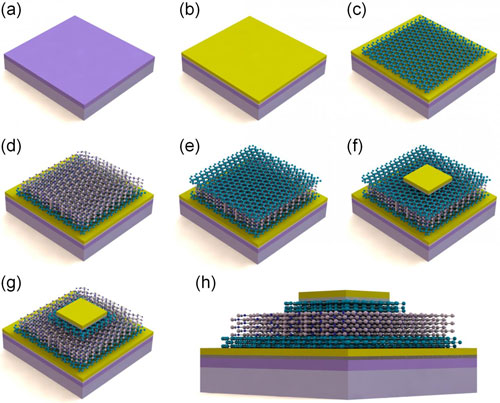| Posted: May 30, 2017 |
Model for 2-D materials based RRAM found
(Nanowerk News) Graphene and related two dimensional (2D) materials have raised massive interest and investment during the last years. However, the amount of 2D-materials-based commercial devices available in the market is still very low.
|
|
The research group led by Dr. Mario Lanza, a Young 1000 Talent Professor born in Barcelona (Spain) and based in Soochow University (China), is leading a global effort to investigate the properties of layered dielectrics.
|
|
In their recent investigation, published in the journal 2D Materials ("Model for multi-filamentary conduction in graphene/ hexagonal-boron-nitride/ graphene based resistive switching devices"), Prof. Lanza and co-workers synthesized a resistive random access memory (RRAM) using graphene/hexagonal-boron-nitride/graphene (G/h-BN/G) van der Waals structures.
|
 |
| This image shows resistive random access memory made of graphene electrodes and hexagonal boron nitride dielectric. (© AIP)
|
|
Furthermore, they developed a compact model to accurately describe its functioning. The model is based on the nonlinear Landauer approach for mesoscopic conductors, in this case atomic-sized filaments formed within the 2D materials system.
|
|
Besides providing excellent overall fitting results (which have been corroborated in log-log, log-linear and linear-linear plots), the model is able to explain the dispersion of the data obtained from cycle-to-cycle in terms of the particular features of the filamentary paths, mainly their confinement potential barrier height.
|
|
The development of theoretical models to describe the functioning of electronic devices is one essential step enabling device/systems simulation, which is essential before device mass production. The device selected in this case, the RRAM device, is the most promising technology for future high-density information storage.
|

